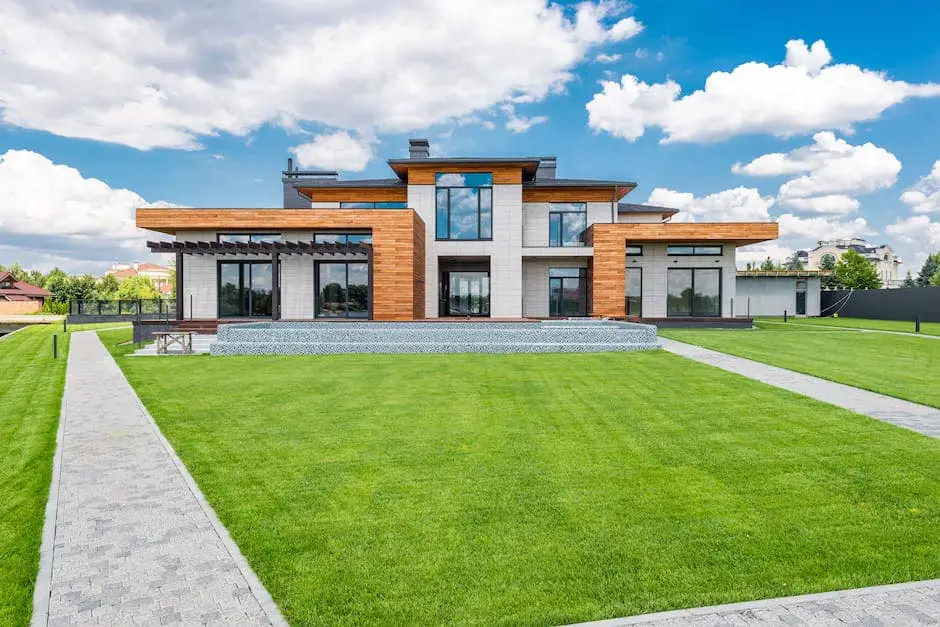
The Role of AI in Real Estate Sustainability and Green Building
Artificial intelligence (AI) is revolutionizing various industries, and real estate is no exception. In particular, AI is playing a significant role in promoting real estate sustainability and green building practices. This article will explore how AI is transforming the real estate industry by enhancing energy efficiency, reducing environmental impact, and promoting sustainable development. We will also discuss relevant examples, case studies, and statistics to support these points.
AI in Energy Efficiency and Conservation
One of the primary ways AI contributes to real estate sustainability is through energy efficiency and conservation. AI-powered systems can analyze vast amounts of data to optimize energy consumption in buildings, reducing both costs and environmental impact. Some examples of AI applications in energy efficiency include:
- Smart thermostats: These devices use AI algorithms to learn occupants’ preferences and habits, adjusting temperature settings accordingly to minimize energy waste.
- Energy management systems: AI can analyze data from various sources, such as weather forecasts and occupancy patterns, to optimize heating, ventilation, and air conditioning (HVAC) systems for maximum efficiency.
- Lighting control: AI can optimize lighting systems by adjusting brightness levels based on natural light availability and occupancy patterns, reducing energy consumption.
According to a study by the American Council for an Energy-Efficient Economy (ACEEE), AI and machine learning could help reduce energy consumption in commercial buildings by up to 20% by 2030. This demonstrates the potential of AI in promoting energy efficiency and real estate sustainability.
AI in Green Building Design and Construction
AI is also playing a crucial role in the design and construction of green buildings. By incorporating AI technologies, architects and engineers can create more sustainable and energy-efficient structures. Some examples of AI applications in green building design and construction include:
- Generative design: AI algorithms can generate multiple design options based on specific criteria, such as energy efficiency, material usage, and cost. This allows architects to select the most sustainable design for a given project.
- Building Information Modeling (BIM): AI can enhance BIM by automating tasks, analyzing data, and optimizing building performance throughout the design and construction process.
- Construction automation: AI-powered robots and drones can assist in construction tasks, reducing material waste and improving overall efficiency.
A case study by Autodesk, a leading software company in the architecture, engineering, and construction industry, demonstrated the potential of AI in green building design. The company used AI-powered generative design to create a more sustainable office space, resulting in a 50% reduction in lighting energy consumption and a 20% reduction in HVAC energy consumption.
AI in Real Estate Investment and Decision-Making
AI is also transforming the way real estate investors and professionals make decisions related to sustainability and green building practices. By leveraging AI technologies, stakeholders can make more informed decisions and identify opportunities for sustainable development. Some examples of AI applications in real estate investment and decision-making include:
- Property valuation: AI algorithms can analyze various factors, such as energy efficiency, green certifications, and local sustainability initiatives, to provide more accurate property valuations.
- Market analysis: AI can help investors identify emerging trends and opportunities in sustainable real estate, enabling them to make more informed investment decisions.
- Risk assessment: AI can analyze data related to climate change, natural disasters, and other environmental factors to assess the potential risks associated with a particular property or investment.
A study by the Urban Land Institute (ULI) found that properties with green certifications, such as LEED and ENERGY STAR, command higher rents and Sale prices compared to non-certified properties. This highlights the growing importance of sustainability in real estate investment and decision-making, and the potential for AI to support these efforts.
Challenges and Future Outlook
While AI holds significant promise for promoting real estate sustainability and green building practices, there are also challenges to overcome. These include data privacy concerns, the need for standardized metrics and benchmarks, and the potential for job displacement due to automation. However, as AI technologies continue to advance and become more widely adopted, it is likely that their role in real estate sustainability will only grow.
Conclusion
In conclusion, AI is playing an increasingly important role in real estate sustainability and green building practices. By enhancing energy efficiency, promoting sustainable design and construction, and supporting informed decision-making, AI has the potential to transform the real estate industry and contribute to a more sustainable future. As AI technologies continue to evolve and become more widely adopted, their impact on real estate sustainability is likely to become even more significant.